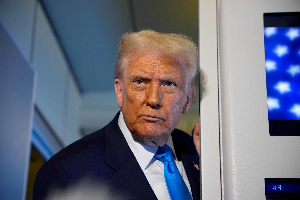On the fiscal policy side, there is a need for some level of tax relief. Again, the tax relief cannot be a blanket affair but based on employment-generating industries and businesses. A tax relief of three years for industries producing consumer goods and two years for those producing capital goods while small and medium industries are also given three years tax relief in the first instance. The effects are reviewed yearly to ensure the programmes are producing desirable outcomes. Tendency is for the government officials to feel that such tax relief would further affect government revenue but as earlier stated, we have to generate wealth and employment first before revenue generation. More importantly, it is not appropriate to intervene in production and immediately impose tax on the same businesses. When production improves and more employment is generated, the new workers will pay personal income tax and the businesses will later start paying their taxes based on higher outputs.
In addition to tax relief, both federal and state governments have to encourage growth of small and medium scale industries based on use of local raw materials and inclusive of private-public participation. Over time, the Federal Government has been raising funds through sale of bond by the Debt Management Office which in most cases have been oversubscribed. Such funds can be used to promote SMIs turning agricultural outputs into consumer or even industrial goods. Recently, maize pyramid was reported in Katsina State; and in the last three years, some states in the North have been reported to produce rice in tons. Nothing stops Katsina State from raising bond or get another intervention fund from the CBN to finance public-private partnership for medium scale maize processing industry in the state. There is no state that cannot produce one or more agricultural output that can be so processed but virtually all states await monthly largess from the federal pot such that they cannot think outside the box on new sources of internally generated revenue. They have all grown complacent, uninspiring and dependent on oil money from the federal account. Ogun State has been reported to be the largest producer and exporter of cassava. Why should we export raw cassava to the rest of the world instead of processing or adding value to it and send the output to the world market at a higher price?
The present situations require that each state generates more funds into the national purse or for itself through promotion of SMIs, adding value to agricultural outputs before moving the products to other states or for export. The country cannot continue to export raw materials or products. We must think of dominating ECOWAS market with Nigerian industrial products as South Africa manufactured products dominate markets in Southern Africa before moving out to cover the whole of Africa. Does Nigeria have any industrial policy? If she has, it is not open to public. Such a policy must empower Nigerians to invest in Nigeria like Aliko Dangote, Mike Adenuga, Femi Otedola, and others, as foreigners are not going to develop our economy because foreign investment is based on profit which has to be repatriated with ease and without loss of value to the country of origin.
Now, we move on to what the Federal Government has to do immediately to rescue the economy from the present conundrum. Three quick issues come to mind namely, reduction in cost of governance; putting a cap on borrowing and debt servicing and to stop ongoing looting. The issue of high cost of governance is self-inflicting. Ghana, like Nigeria, runs a presidential system of government but there is no complaint on high cost. So, it is not the system of governance that affects cost but those running the system. Democracy entails transparency and accountability, implying that salaries, allowances and other emoluments of public officers, including political officials and appointees should be available online at the press of appropriate button on a computer. It is imperative that the cost of governance must be looked into from the monthly take home pay of the legislators to total emolument, including security votes of the executive arm of government. The extant law guiding fiscal operations needs to be implemented and obeyed.
Nigeria fought a civil war for about three years under General Yakubu Gowon with available resources and without borrowing from both domestic and foreign sources. Thereafter, our economic managers have developed taste buds for borrowing and one suspects it is not unconnected with the fact that there are personal benefits from concerned creditors for mobilising loans for a country or a client. What is important now is that we have borrowed money beyond repayment capability given dwindling revenue.
Reports on corruption in Nigeria compete favourably with those of insecurity every day in the news. The reports show that there is competition for stealing Nigeria’s assets and soul between politicians and civil servants. Nigeria’s corruption level is what Rose-Ackerman referred to as Competitive-bribery State. It is a state of loose relationship whereby many corrupt officials deal with a large number of ordinary citizens and firms. It is a case for potential upward spiral of corruption such that some officials can encourage others to accept bribes until all but the reconstructed moralists are corrupt. Nigeria is in a difficult situation where those empowered to arrest the corrupt are themselves immersed in corruption; a situation in which a minister, state official, politician or civil servant, a governor or senator or even a clerk wants to be richer than their state or country; a shameful act where Customs officials would go into shops in the darkest hours of the night to steal rice and money in the name of official duty which act was justified by their superior officers; a situation in which both federal and state governments would be fighting over ownership of looted money returned from abroad! For a country to get out of such a conundrum if the leadership looks helpless or unperturbed requires violent protests or even revolution by the public who are at the receiving end of the corrupt state characterised by inefficient civil service, poor service delivery from public utilities, general level of insecurity, increasing level of unemployment and poverty. What else can describe the situation in Nigeria today?
On the international trade front, Nigeria needs to step up the sale of gas, particularly into new markets in Africa and other developing countries with the aim of dominating the market in such countries. In addition, there is the need to add value to our exports. This implies that rather than export raw cocoa, cassava, maize, groundnut, cashew, etc, we must export processed products of these agricultural outputs. Adding value to these raw products will lead to industrialisation, and by extension, generation of employment and incomes. Many foreign companies buying the raw materials could be forced to come and establish their industries in Nigeria and be involved in the processing. When Americans developed taste for Japanese vehicles in the 1970s due to quadrupling of oil price, the former did not ban the importation of vehicles but encouraged Japan to establish its plants in the US. That action not only saved the US from paying for imports, but also led to the exploration of the raw materials with added technology adoption, employment generation and collection of taxes from the Japanese companies. This may be seen as another attempt at import substitution industrialisation which failed woefully earlier but we must have learnt some lessons that can prevent failure this time around.
For a long-run economic development, the focus of government at all levels must be on quality education and health services, as well as decent living minimum wage, industrialisation and justice. Which of the advanced and emerging economies has a literacy level below 90 per cent? Even China with a population seven times Nigeria at about 1.4 billion has around 95 per cent literacy level and the revolution to get there from less than 50 per cent literacy level started in 1949! The world economy is dominated by Chinese products today. Education has the required elements to improve productivity in work places and improve employment situation, incomes and promote inclusive growth which invariably improve living standards and revenue to the government.
Every progressive country has a minimum wage. The proposal at the National Assembly that salaries of workers in Nigeria should literally be by choice or whims and caprices of the state government is an attempt at absence of minimum wage and enslavement which will be more injurious to the economy than what the politicians envisaged. Are Nigerian leaders proud to lead a poverty infested country or resource curse economy? Is there a desire by them to ruin this economy before flying to their adopted countries in Europe, America and Saudi Arabia? Do they see that other African countries don’t respect them for failing Africa through poor leadership? Finally, Nigeria and each state of the federation need a medium to long-term national and state development plans. A few states have such plans and others need to join. One is proposing this again for the record. We must chart a course for guided development, if this giant of Africa must get up from the grass, where we currently lie prostrate.
Concluded
Opinions of Friday, 28 May 2021
Columnist: Professor Tella
Nigeria: This giant must get up the grass (2)
Business














